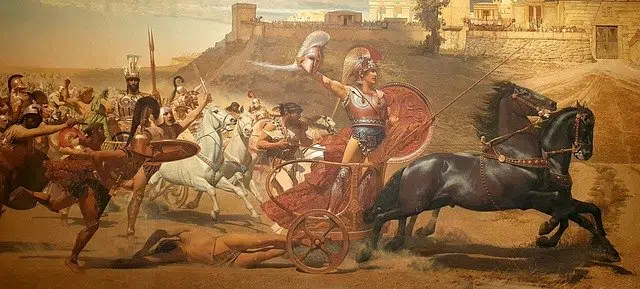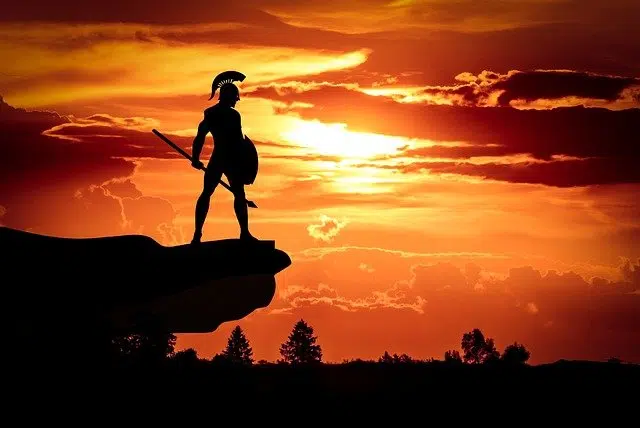
An epic is a narrative poem that tells of an feat.
Greek is the language in which the etymological origin of the term that concerns us now is found. This comes from the word epopoiía , which is the result of the union of several clearly delimited parts such as: epos which can be defined as “poetic or sung discourse” and poiein which is equivalent to “create”.
In this way, taking into account this breakdown and mixture of words and meanings, we proceeded to give rise to that epic , which was considered to be a long poem that was used to describe heroic or legendary events.
What is an epic
An epic is defined as a poem of a narrative nature and considerable length that presents a large and public action or feat, starring characters with a heroic spirit and where supernatural details are appreciated. The term is also used to describe the poems that constitute the epic tradition of a community or town.
Epics can be developed in prose or structured as long verses ( hexameter ). Its contents narrate transcendental actions for a people and include heroes who represent the values most admired by the population. Wars and travels, in general, tend to be the most common events in epics.

Epics are starring heroes.
From Gilgamesh to the Iliad, the Odyssey and the Aeneid
In its origins, the epic was spread orally. The so-called Epic of Gilgamesh is not only the first epic of which there are written records, but also the oldest narrative. It was written by the Sumerians in the 2nd millennium BC on tables reinforced with clay.
The best-known Greek epics (named the Iliad and the Odyssey ) are attributed to Homer , while, among the Romans, the most popular epic is the Aeneid , created by Virgil .
“The Iliad”, specifically, is a Greek epic that is considered the oldest written poem that exists within Western Literature. It was made by Homer and in the more than 15,000 verses that make up it, what is told is part of what happened in the well-known Trojan War, focusing fundamentally on the figure of Achilles.
For its part, “The Odyssey”, dated to the 8th century BC, is composed of a total of 24 songs through which it is told how, after the end of the aforementioned war, the return of the hero Odysseus (Ulysses) occurs. to his home which is none other than the Island of Ithaca. A return that will take him ten years during which he will have to face all kinds of vicissitudes, while various characters arrive in his kingdom ready to marry his wife (Penelope) because everyone believes that he has died.
Other famous epics
Other works considered epics are the Song of My Cid , the Song of Roland and The Divine Comedy . Among the more modern works, Paradise Lost by John Milton and Martín Fierro by José Hernández are also often classified as epics.
For everyday language, finally, an epic is a glorious episode . For example: “The Spanish team completed the epic and became world champions,” “There was no place for the epic in a city where tears are commonplace.”
